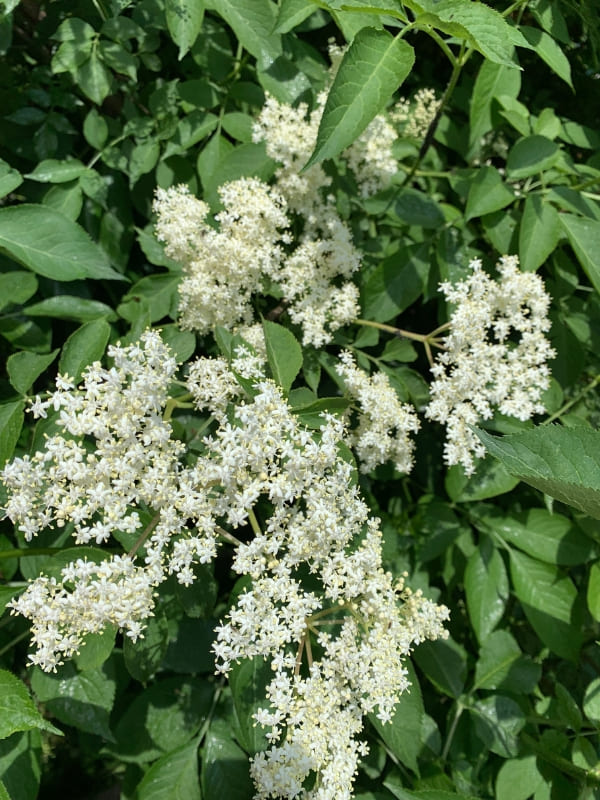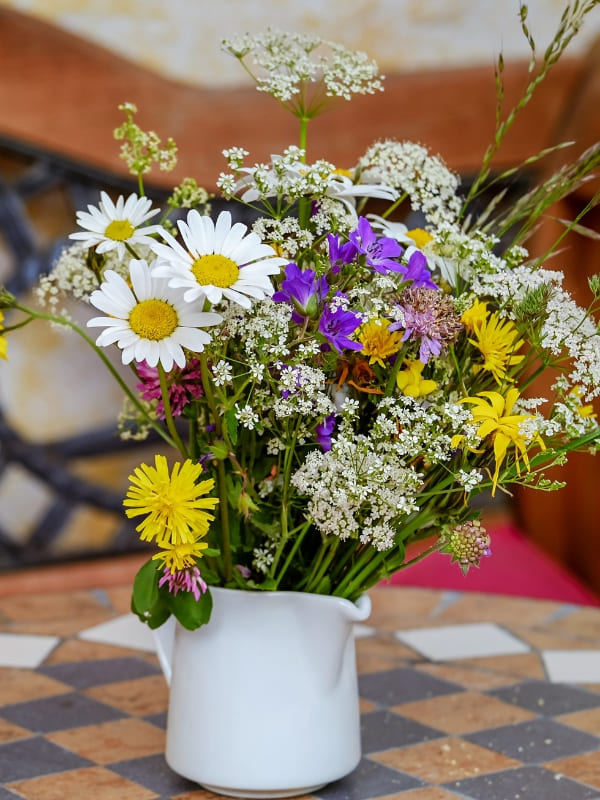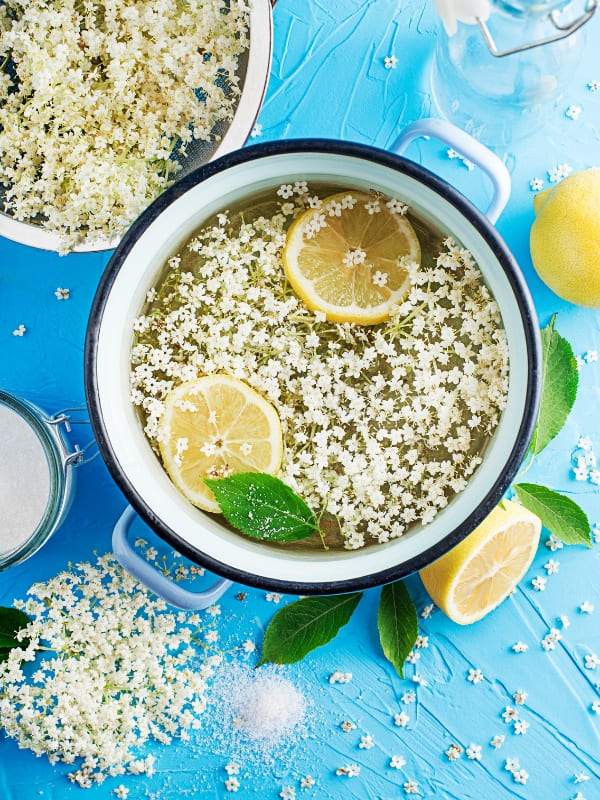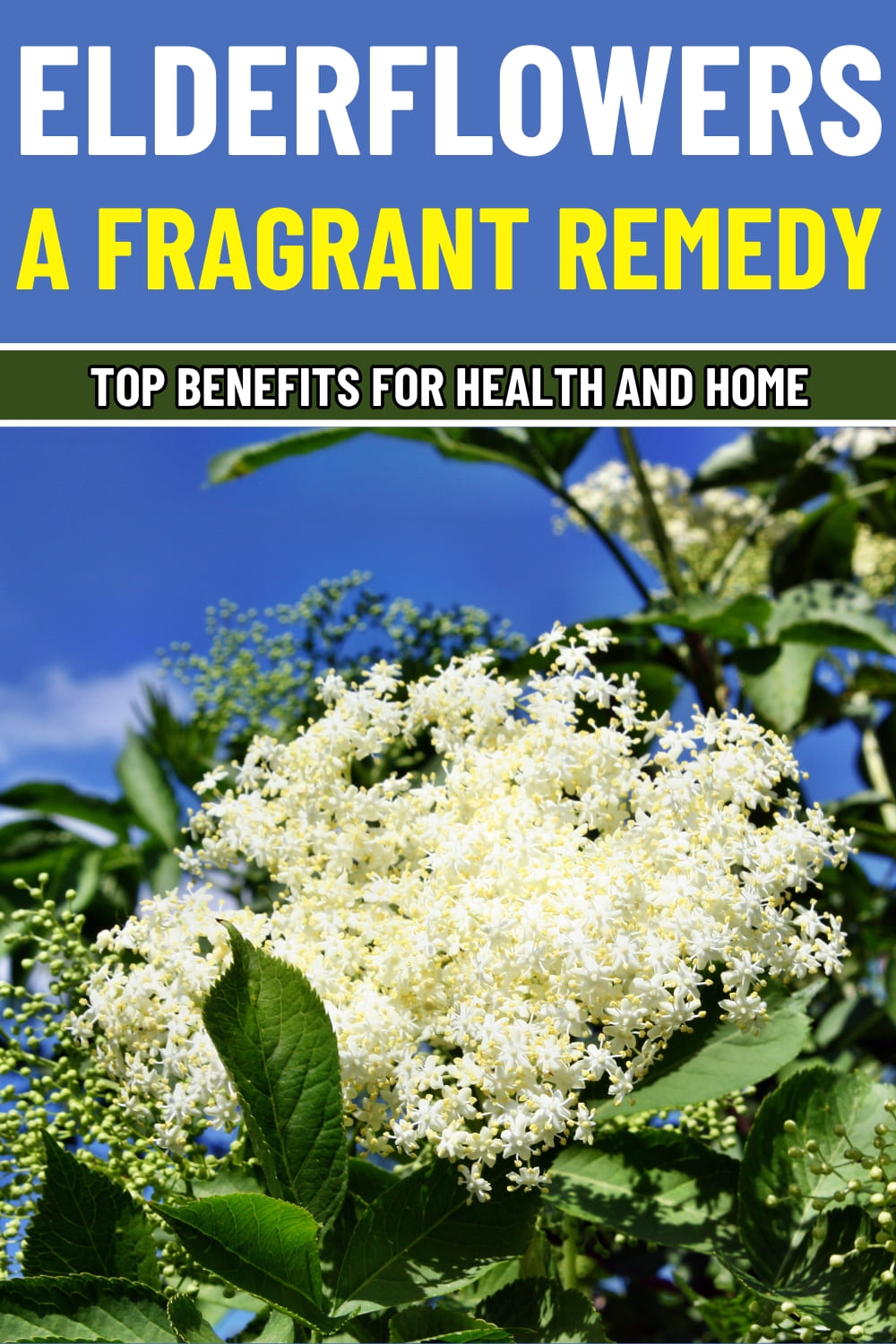Elderflowers, the delicate blossoms of the elderberry plant (Sambucus nigra), are a true gift from nature.
With their subtle fragrance and countless uses, these flowers have been treasured for centuries in both kitchens and herbal medicine cabinets.
Beyond their culinary appeal, elderflowers offer numerous health benefits, from supporting respiratory health to boosting the immune system.
Health Benefits of Elderflowers
1. Boosts Immune Health
Elderflowers are packed with antioxidants, particularly flavonoids such as quercetin and anthocyanins, which help protect the body from oxidative stress.
These compounds enhance the immune system’s ability to ward off infections, making elderflowers an effective remedy during cold and flu seasons.
A 2019 study published in Advances in Traditional Medicine highlighted the elderflower’s role in reducing the severity and duration of respiratory illnesses.
Its immune-boosting properties come from its ability to increase cytokine production, enhancing the body’s defense mechanisms.

2. Aids in Managing Fevers
Traditionally, elderflowers have been used as a diaphoretic, promoting sweating to naturally reduce fevers. This makes them particularly useful in treating colds, flu, and other fever-related conditions.
When brewed into a tea and combined with herbs like yarrow, elderflowers work synergistically to soothe the body.
The active compounds in elderflowers help regulate the body’s temperature by encouraging perspiration, which cools the body and flushes out toxins.
3. Supports Respiratory Health
For those suffering from sinus congestion or bronchitis, elderflowers are a natural solution. Their anti-inflammatory properties reduce swelling in mucous membranes, easing symptoms like nasal congestion and sore throats.
Elderflowers are rich in phenolic acids, which help soothe irritated respiratory tissues, providing relief during seasonal allergies or colds.

4. Reduces Inflammation
Elderflowers contain bioactive compounds with strong anti-inflammatory properties. These compounds are beneficial for conditions like arthritis or inflammatory bowel disease, where chronic inflammation can lead to discomfort and complications.
A study in the Journal of Ethnopharmacology found that elderflower extracts significantly reduced markers of inflammation, making them a promising natural remedy for inflammatory disorders.
5. Promotes Healthy Skin
Elderflowers are often used in skincare for their astringent and soothing properties. They help tighten pores, reduce redness, and promote an even complexion.
Additionally, the antioxidants in elderflowers combat free radicals, preventing premature aging.
Elderflower-infused water can be applied as a facial toner or added to homemade creams to soothe irritated skin.

Other Benefits of Elderflowers
1. Culinary Applications
Elderflower tea is not only delicious but also therapeutic. Its light floral notes pair well with honey and lemon, making it a comforting drink during illness.
Coating elderflower clusters in a light batter and frying them creates a crispy, fragrant treat loved in traditional European cuisines.
Elderflower syrup is a versatile addition to cocktails and desserts or simply mixed with sparkling water for a refreshing drink.
2. Natural Pest Control
Elderflower sprays can be used in gardens to deter pests. Their natural compounds repel insects without the need for harsh chemicals, making them an eco-friendly option for home gardeners.
3. Aromatic and Decorative Uses
The delicate, creamy-white blossoms of elderflowers add an enchanting touch to floral arrangements and potpourri. Their fragrance makes them a favorite in traditional crafts and home decor.

How to Use Elderflowers
1. For Health Benefits
- Elderflower tea: Steep 1–2 teaspoons of dried elderflowers in hot water for 5–10 minutes. Add honey for sweetness and enjoy its soothing effects.
- Tinctures and syrups: Use concentrated elderflower extracts for a quick and potent dose of its benefits.
- Topical use: Create elderflower-infused oil by steeping dried flowers in a carrier oil like jojoba or almond. Use it as a base for soothing skin balms.
2. In the Garden
Plant elderberry shrubs in sunny locations with well-drained soil. Elderflowers will bloom in late spring to early summer, providing a habitat for pollinators like bees and butterflies.
Harvest flowers when fully bloomed for culinary or medicinal uses.

Cautions and Precautions
Always ensure flowers are properly cooked or dried before use.
Individuals allergic to plants in the honeysuckle or daisy family may experience sensitivity to elderflowers. Test with a small amount before regular use.
Elderflower may interact with diuretics or medications that lower blood sugar.
Disclaimer
This article is for informational purposes only and does not constitute medical advice.
Always consult with a healthcare professional before using elderflowers or any herbal remedies, especially if you are pregnant, nursing, or have pre-existing health conditions.

Elderflowers: A Fragrant Remedy for Health and Home
